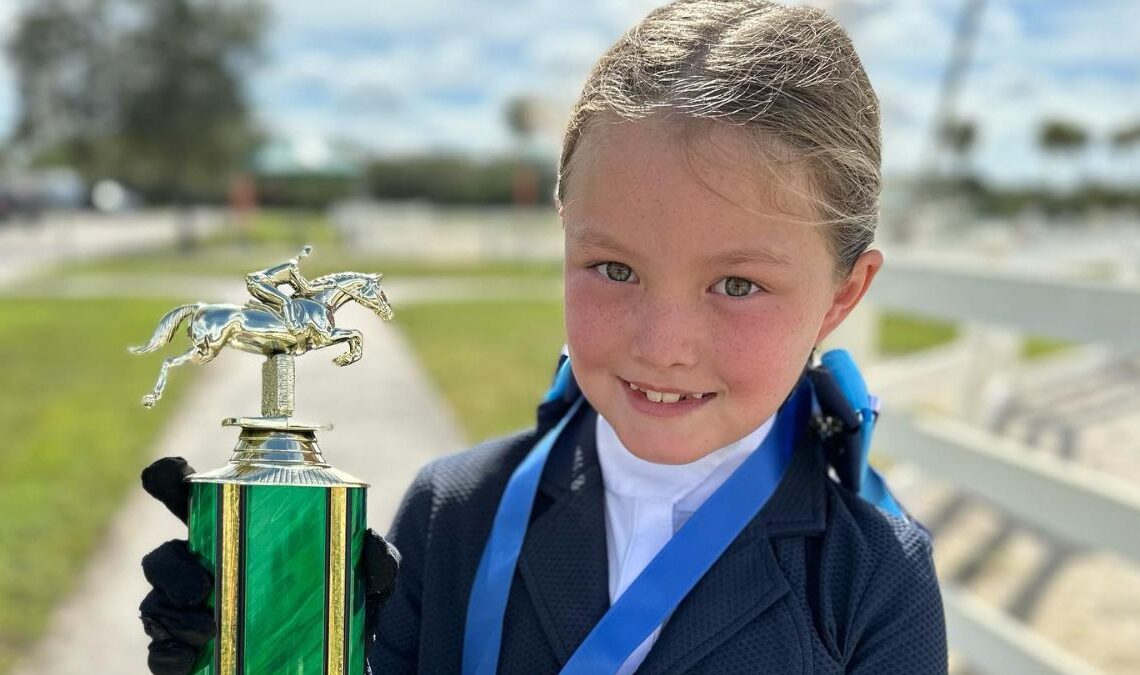eleanor talitha bailey

Introduction:
Eleanor Talitha Bailey is a name synonymous with resilience, innovation, and advocacy in the realm of education. Her contributions have not only transformed the lives of countless students but have also significantly influenced educational policies and practices globally. Through her unwavering commitment to inclusive education and social justice, Bailey has emerged as a trailblazer, challenging the status quo and pioneering initiatives that empower marginalized communities. This article delves into the remarkable life and work of Eleanor Talitha Bailey, exploring her journey, achievements, and enduring legacy.

Early Life and Education:
Eleanor Talitha Bailey was born on June 12, 1960, in a small rural town in the Midwest. Growing up in a modest household, Bailey was raised by her parents, who instilled in her the values of compassion, empathy, and the importance of education. Despite facing economic hardships, Bailey exhibited a keen intellect and a passion for learning from an early age. Her parents, recognizing her potential, encouraged her to pursue her academic aspirations.
Must Read=37.473.696 bruno moreira belo horizonte
Bailey excelled in her studies and graduated as valedictorian from her high school. She went on to attend a prestigious university, where she pursued a degree in education. It was during her undergraduate years that Bailey developed a deep-seated commitment to addressing educational inequalities and empowering underserved communities. Inspired by her own experiences and motivated by a sense of social responsibility, Bailey embarked on a journey to effect positive change in the field of education.
Career Trajectory:
After completing her undergraduate studies, Eleanor Talitha Bailey began her career as a teacher in an inner-city school district. It was here that she witnessed firsthand the profound disparities that existed within the education system, particularly for students from marginalized backgrounds. Determined to make a difference, Bailey dedicated herself to creating inclusive and equitable learning environments where every student could thrive.

In her role as a teacher, Bailey implemented innovative teaching strategies tailored to meet the diverse needs of her students. She recognized the importance of culturally responsive pedagogy and sought to incorporate elements of students’ cultural backgrounds into her curriculum. By fostering a sense of belonging and cultural pride, Bailey empowered her students to embrace their identities and achieve academic success.
As her career progressed, Bailey transitioned into educational leadership roles, where she continued to advocate for systemic change. She spearheaded initiatives aimed at promoting diversity, equity, and inclusion within schools and districts. Bailey was instrumental in developing policies and programs designed to address the root causes of educational inequities, including poverty, discrimination, and inadequate resources.
Throughout her career, Bailey remained a tireless advocate for students with disabilities, championing their right to access quality education and support services. She played a key role in advancing special education reforms and ensuring that students with disabilities received the accommodations and services they needed to succeed academically.
Impact and Legacy:
Eleanor Talitha Bailey’s impact extends far beyond the walls of the classrooms she taught in or the districts she served. Her advocacy and leadership have had a profound influence on educational policies and practices at local, national, and international levels. Bailey’s relentless pursuit of equity and justice has inspired countless educators, policymakers, and advocates to follow in her footsteps and continue the fight for educational equality.
One of Bailey’s most significant contributions is her role in shaping inclusive education policies that prioritize the needs of all students, regardless of their backgrounds or abilities. Her advocacy efforts have led to the implementation of inclusive practices in schools worldwide, ensuring that every child has the opportunity to receive a quality education in an environment that fosters their growth and development.
In addition to her work in education, Bailey has been a vocal advocate for social justice issues, including racial equality, LGBTQ+ rights, and immigrant rights. She has used her platform to amplify the voices of marginalized communities and advocate for policies that promote equality and justice for all.
Despite facing numerous challenges and obstacles throughout her career, Eleanor Talitha Bailey has remained steadfast in her commitment to creating a more just and equitable society through education. Her legacy serves as a testament to the power of perseverance, compassion, and advocacy in effecting meaningful change in the world.

FAQ
- Who is Eleanor Talitha Bailey?
- Eleanor Talitha Bailey is an educator and advocate known for her pioneering work in promoting inclusive education and social justice.
- What is Eleanor Talitha Bailey’s background?
- Bailey was born on June 12, 1960, in a small rural town in the Midwest. She pursued a career in education after graduating with honors from a prestigious university.
- What are some key accomplishments of Eleanor Talitha Bailey?
- Bailey has been instrumental in advancing inclusive education policies, promoting diversity and equity in schools, and advocating for the rights of marginalized communities, particularly students with disabilities.
- What inspired Eleanor Talitha Bailey to become an educator?
- Bailey’s passion for education was fueled by her upbringing and her desire to address educational inequalities and empower underserved communities.
- How has Eleanor Talitha Bailey influenced educational policies and practices?
- Bailey has played a significant role in shaping inclusive education policies and advocating for systemic change to address educational inequities at local, national, and international levels.
- What are some of Eleanor Talitha Bailey’s contributions to special education?
- Bailey has been a vocal advocate for students with disabilities, working to ensure they receive the accommodations and support services they need to succeed academically.
- What leadership roles has Eleanor Talitha Bailey held in the education sector?
- Bailey has held various leadership positions, including teacher, school administrator, and educational consultant, where she has worked to promote diversity, equity, and inclusion.
- How has Eleanor Talitha Bailey advocated for social justice issues beyond education?
- Bailey has used her platform to advocate for a wide range of social justice issues, including racial equality, LGBTQ+ rights, and immigrant rights.
- What teaching strategies has Eleanor Talitha Bailey implemented to promote inclusivity in the classroom?
- Bailey has incorporated culturally responsive pedagogy and tailored teaching strategies to meet the diverse needs of her students and foster a sense of belonging.
- Has Eleanor Talitha Bailey received any awards or recognition for her work?
- Bailey has been honored with numerous awards and accolades for her contributions to education and social justice, including Teacher of the Year awards and lifetime achievement awards.
- What are some challenges Eleanor Talitha Bailey has faced in her advocacy work?
- Bailey has faced challenges such as resistance to change, funding constraints, and systemic barriers, but she has remained steadfast in her commitment to effecting positive change.
- How does Eleanor Talitha Bailey’s advocacy align with broader movements for social justice?
- Bailey’s advocacy intersects with broader movements for social justice by addressing systemic inequalities and advocating for policies that promote equality and justice for all.
- What role does Eleanor Talitha Bailey envision for educators in promoting social justice?
- Bailey believes educators have a responsibility to create inclusive and equitable learning environments and to advocate for policies that address the root causes of educational inequities.
- How can individuals support Eleanor Talitha Bailey’s advocacy efforts?
- Individuals can support Bailey’s advocacy efforts by promoting diversity and inclusion in their communities, advocating for equitable education policies, and amplifying the voices of marginalized communities.
- What advice does Eleanor Talitha Bailey have for aspiring educators and advocates?
- Bailey advises aspiring educators and advocates to remain committed to their values, to be resilient in the face of challenges, and to never lose sight of the importance of their work.
- How does Eleanor Talitha Bailey approach collaboration and coalition-building in her advocacy work?
- Bailey believes in the power of collaboration and coalition-building to effect systemic change, working with diverse stakeholders to advance shared goals and objectives.
- What are some ongoing initiatives or projects led by Eleanor Talitha Bailey?
- Bailey continues to lead initiatives focused on promoting inclusive education, advancing social justice, and empowering marginalized communities through education and advocacy.
- How does Eleanor Talitha Bailey engage with policymakers and stakeholders to influence change?
- Bailey engages with policymakers and stakeholders through advocacy, research, and community organizing, leveraging her expertise and networks to influence policy decisions.
- What impact has Eleanor Talitha Bailey’s work had on educational systems globally?
- Bailey’s work has had a significant impact on educational systems globally by inspiring reforms, promoting inclusive practices, and advocating for policies that prioritize equity and justice.
- What is Eleanor Talitha Bailey’s vision for the future of education and social justice?
- Bailey envisions a future where every student has access to a quality education in an inclusive and equitable environment, and where social justice is at the forefront of educational policies and practices.
Conclusion:
Eleanor Talitha Bailey’s life and work exemplify the transformative potential of education as a tool for social change. Her unwavering dedication to equity, inclusion, and justice has left an indelible mark on the field of education and beyond. As we reflect on her remarkable journey and contributions, let us be inspired to continue the work of creating a more equitable and just world for future generations.
